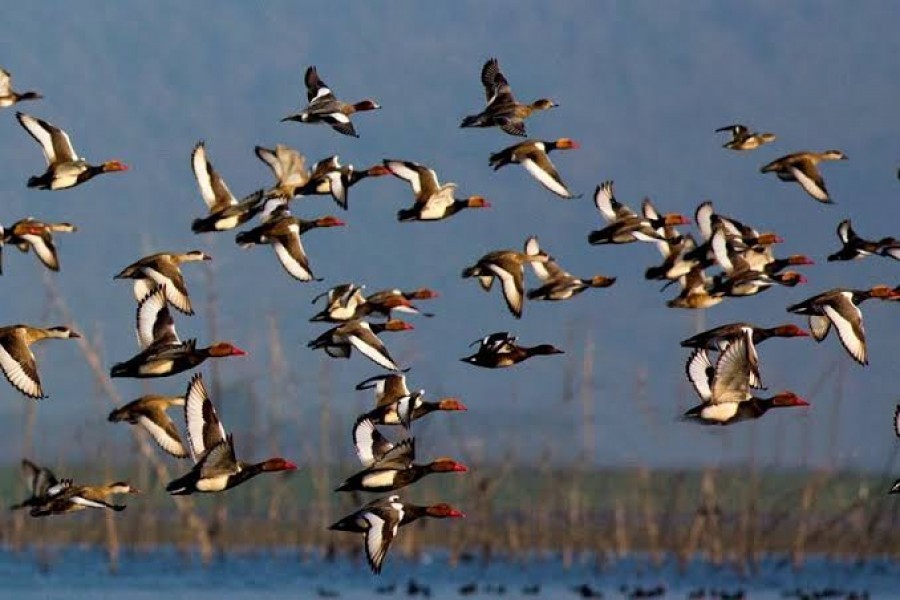
Published :
Updated :

Lots of people in the South Asia used to eke out a living by hunting birds. Few objected to their profession. But after the faint start of wildlife protection movements across the globe, the region also realised the harm its poachers were doing to the environment. By that time, bird-watchers and conservationists in different countries adopted a firm stance on saving the birds and maintaining ecological balance. Bangladesh has also not lagged behind. The crux of the matter is, despite myriad restrictions and deterrents being in place, hunting winter migratory birds continues in the country in some form or the other.
However, there is good news. The relentless activism triggered by the bird watchers in Bangladesh witnessed a significant development: The hawking of birds on the streets of Dhaka and the other cities has all but stopped. Thanks to stringent enforcement of relevant laws, a growing public consciousness, hunting or catching of birds in an around popular sanctuaries has to a marked extent diminished. However, damage has already been done to the image of Bangladesh as a land hospitable to the winter-battered birds from distant countries. Many flew in to Bangladesh from lands thousands of miles away. Since winter in the temperate climate of Bangladesh doesn't create adversities for the guest-birds, they have been visiting the country's water bodies every winter. Abundant foods were there, along with the atmospheric warmth required for laying eggs and hatching.
Hunting of birds with guns for their meat dates back to the period when hand-held light guns began to be widely available. At one stage, the situation in the USA deteriorated to such an extent that the bird-lovers identified a declining trend in the bird populations. It prompted the enactment of the Lacey Act of 1900 followed by the Migratory Bird Act of 1918. It was the Acts' implementation which witnessed the dawn of the modern Conservation Movement. Licences for bird hunting were a prerequisite in many countries in the past. Besides, the purchase of a special stamp called Migratory Bird Hunting Stamp Act was made mandatory in the USA in 1934. The use of the Conservation and the Duck Stamp Act also accompanied the former requirement. At present, the International Union for Conservation of Nature (IUCN) covers the safety and security of all wildlife species worldwide. Migratory birds comprise a large segment of the area.
Being a country inhabited by nature-loving and compassionate people for ages, killing or harming of guest birds by them should have been against their very grain. However, maltreatment with the migratory birds has led to a waning of their interest in Bangladesh. Many older spots are now found short of their earlier density. The bird flocks long familiar with the hospitality of the local hosts are now in search of newer shelters. But a few years of welcoming and caring notes could instil a sense of security back in the birds' mental world. They will then begin descending in large flocks on the wetlands of Bangladesh adding to the country's ecological asset, let alone enhancing tourist magnetism.


 For all latest news, follow The Financial Express Google News channel.
For all latest news, follow The Financial Express Google News channel.